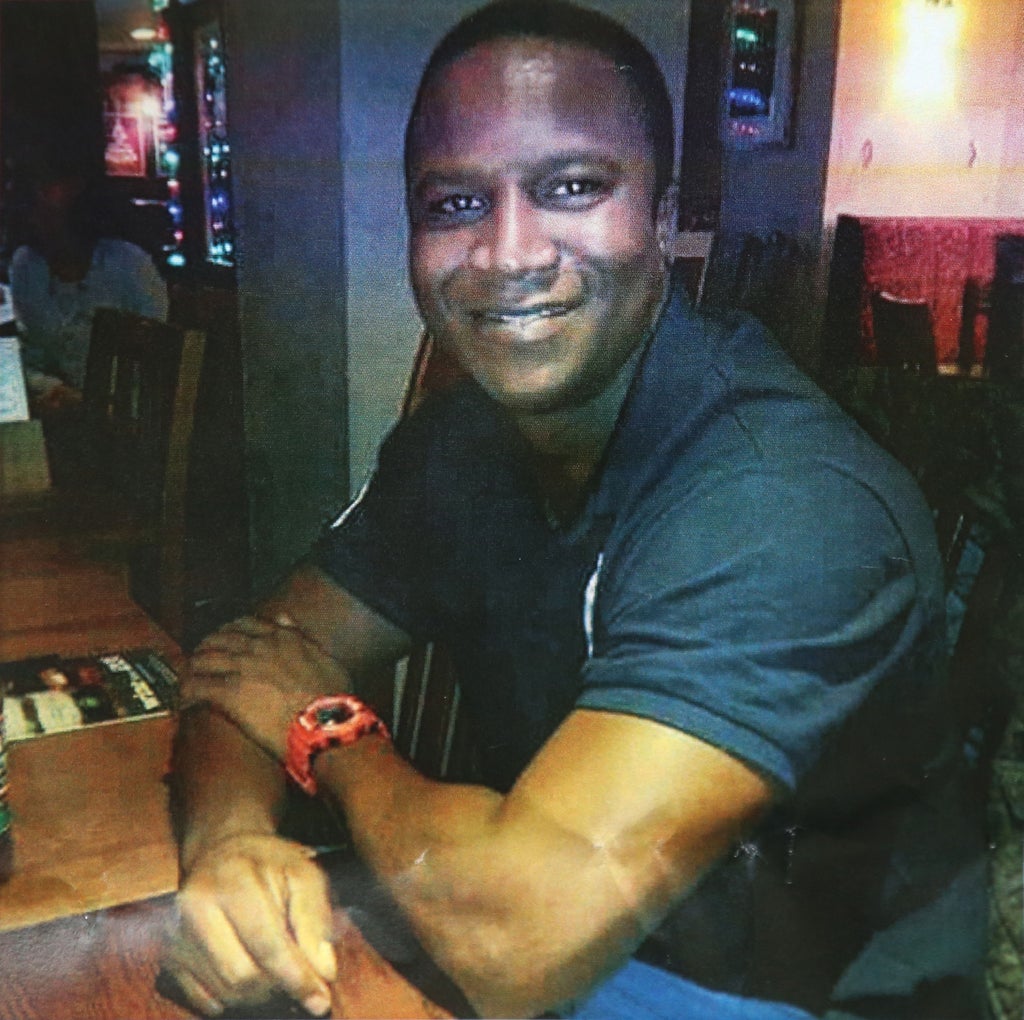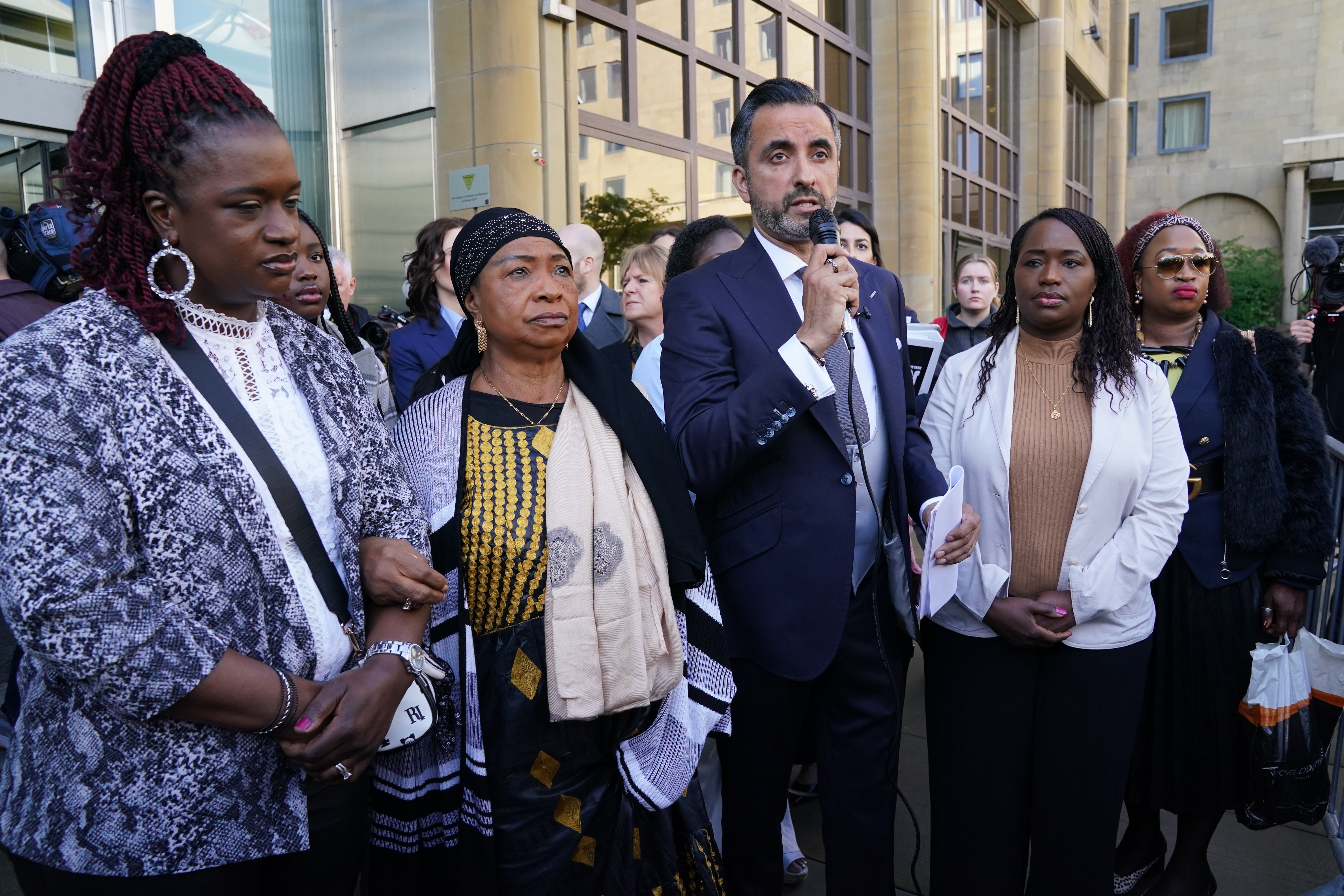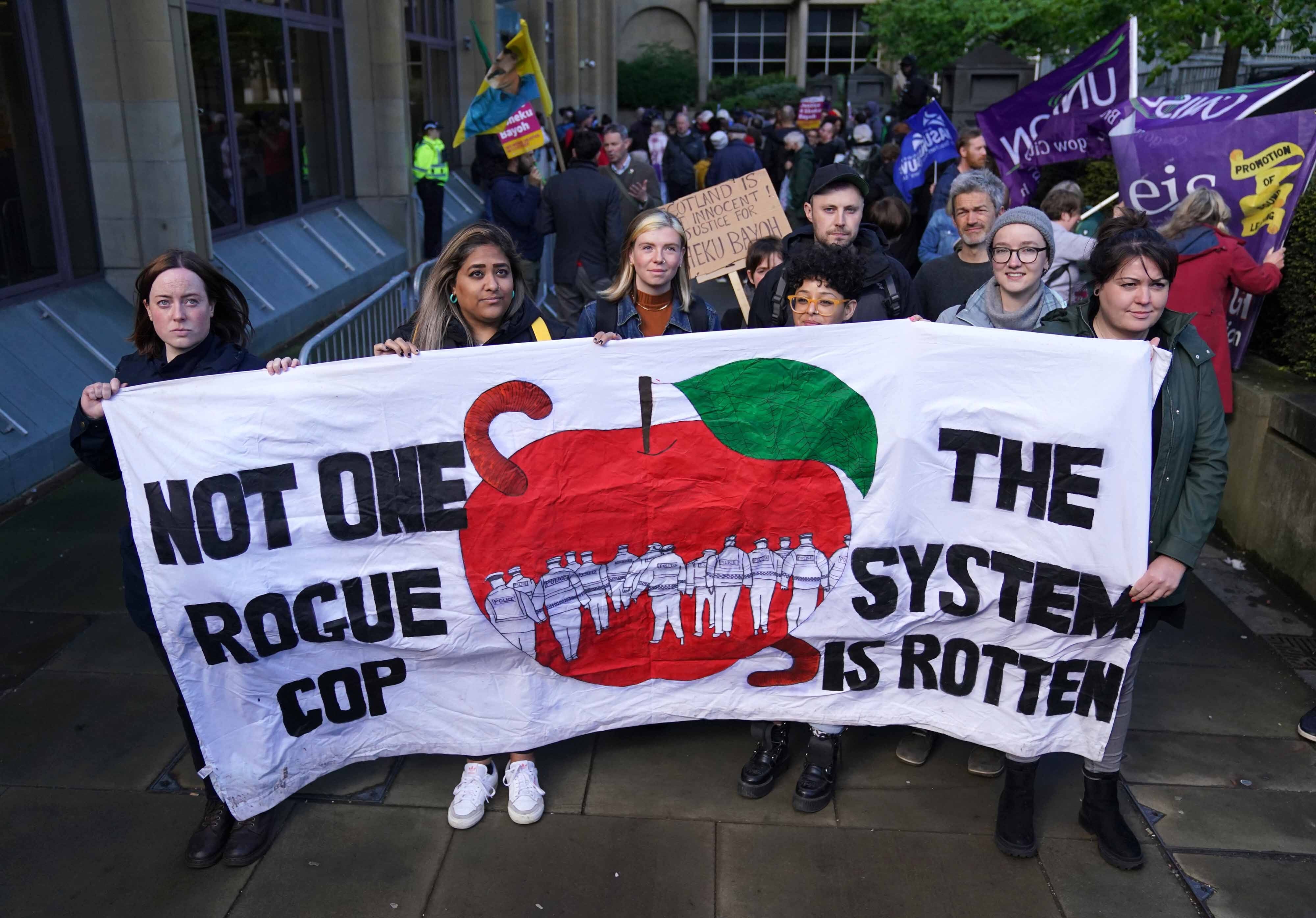
The family of a black man who died in custody have claimed police operated an “unholy trinity of dishonesty, racism and incompetence” as a public inquiry into his death got underway.
They said Sheku Bayoh was “Scotland’s George Floyd” and believe they have been “failed” by authorities on the opening day of the investigation.
The 31-year-old trainee gas engineer died seven years ago while being held by officers responding to a call in Kirkcaldy in Fife.
The public inquiry is now set to look at the circumstances leading up to his death, what happened afterwards and the subsequent investigation.
It will also look to establish the role the father-of-two’s race may have played in his death.

Ahead of the inquiry, the Bayohs’ solicitor said it had become clear to the family over the years the police, its watchdog and the Crown Office had “operated an unholy trinity of dishonesty, racism and incompetence”.
Aamer Anwar told a press conference this betrayed “the word justice”.
“Kadi Johnson [Mr Bayoh’s sister] has no doubt that the way Sheku or her family were treated by the justice system would not have happened had Sheku been white, their treatment was compounded by repeated attacks from those who remain in a childlike denial about the existence of racism in policing today,” he said.
Kadi has described hkeku as Scotland's George Floyd, but taking the knee and Black Lives Matter will mean nothing if Scotland fails to support justice for Sheku
“Kadi has described Sheku as Scotland’s George Floyd, but taking the knee and Black Lives Matter will mean nothing if Scotland fails to support justice for Sheku.”
Floyd, a 46-year-old Black American, was killed while pleading for air as a policeman kept him pinned to the ground in 2020. Derek Chauvin has been sentenced for his murder.
His death sparked protests around the world against racism and police brutality.
On Tuesday, protesters flocked to Capital House in Edinburgh on the first day of the inquiry into Bayoh’s death chanting “black lives matter”.
Some were holding pictures of the gas engineer, while others were holding banners urging people to stand up to racism and calling for justice. Another said: “Not one rogue cop, the system is rotten.”

No charges have been brought because of his death.
Mr Anwar, the family lawyer, said on Tuesday Bayoh had been brought to the ground within 50 seconds of police officers arriving at the scene in May 2015.
“He was handcuffed and retrained with leg and ankle cuffs, and would never get up again, losing consciousness and dying,” he said.
“As Kadi said when they put her brother’s lifeless body in the ambulance, he was still shackled like a slave, with over 24 separate injuries, cuts, lacerations, bruises and a broken rib.
“Within minutes, the process of criminalising, smearing and stereotyping began to enforce an image of a mad and dangerous black man, wielding a knife and with stereotypical characteristics of extraordinary strength in an attempt to blame Sheku for his own death, but he was unarmed and never deserved to die.”
The lawyer added: “Sadly, Sheku is not by any means to first man to die in police custody but, if anything, I hope that his name does not fade from memory and that one day the name of Sheku leaves us a legacy that his children can be proud of.”
Deborah Coles, director of the justice charity Inquest, said: “This inquiry must be a watershed moment for Scotland in examining issues around institutional racism, police restraint practices and the flawed systems for responding to deaths.”
A spokesperson for the Crown Office and Procurator Fiscal Service said: “The Crown welcomes the start of the hearings and is committed to assisting the Inquiry in whatever way it can.”
Police Scotland and the Police Investigations and Review Commissioner watchdog have been approached for comment.







